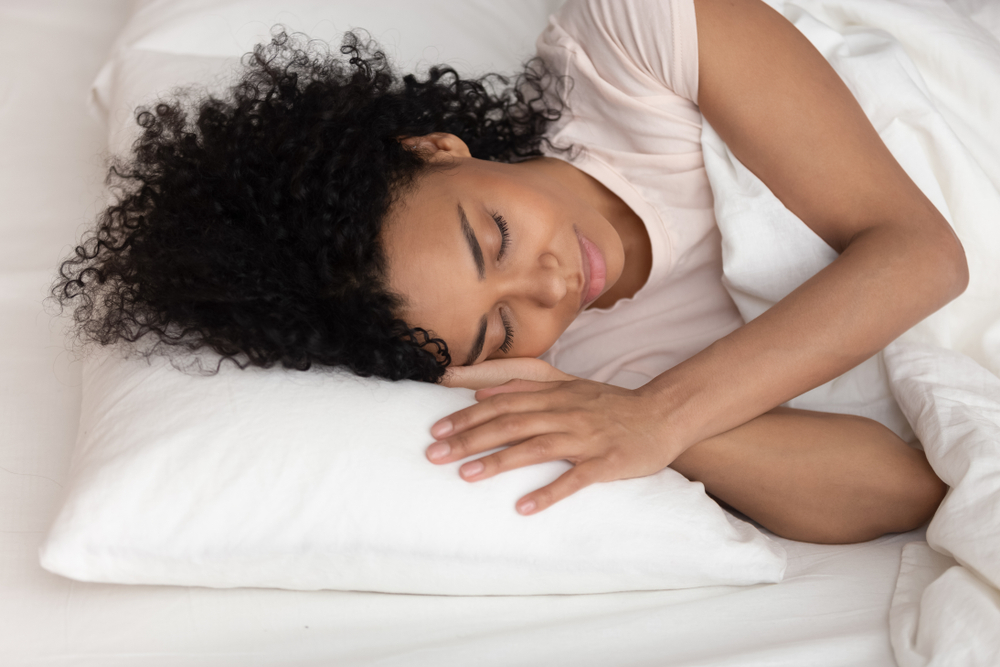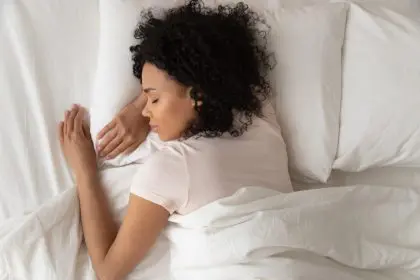It happens more often than you realize. You’re drifting off into sleep, but suddenly, you feel an unexplained chill. You grab for another blanket, pull your hoodie tighter or tuck your feet in deeper. It’s not your imagination. There’s real science behind why the body tends to feel colder just before sleep settles in.
Understanding this curious shift is not just interesting — it can also help you improve your sleep hygiene, comfort and overall health.
Your body’s natural cool-down process
When nighttime hits, your body prepares itself for rest by initiating a series of changes. One of the most significant adjustments is body temperature. Internally, you begin to cool down as your brain sends signals to lower your core heat. This dip in temperature is one of the body’s key methods to induce drowsiness.
Your circadian rhythm — the internal clock that regulates sleep and wake cycles — guides this process. As evening approaches, melatonin production increases. Melatonin doesn’t just make you sleepy; it also helps reduce body temperature. This hormonal response causes blood vessels near the skin to widen, releasing heat from the body’s core and making you feel cooler.
Why the sudden chill happens
The chill you feel just before falling asleep is often the result of heat leaving your core. While this temperature change is subtle, the surface of your body — particularly your hands, feet and face — becomes more sensitive to cooler air.
This perception of cold is a biological cue, telling your body it’s time to power down. However, in colder environments or when you’re sleep-deprived, that chill can feel sharper and more uncomfortable. People who struggle with sleep disorders or irregular schedules may experience these cold sensations more intensely.
How your sleep environment affects the chill
Your sleep environment plays a significant role in how you experience the pre-sleep cool-down. If your bedroom is too cold, the natural decrease in body temperature can feel more extreme. On the other hand, if it’s too hot, the body may struggle to release heat efficiently, making it harder to fall asleep.
Experts recommend keeping your room between 60 and 67 degrees for optimal sleep. Cooler temperatures signal to the brain that it’s nighttime, helping maintain a healthy circadian rhythm. But layering with cozy blankets or wearing breathable thermal sleepwear can help you manage the sensation of cold while still benefiting from a cool environment.
Why some people feel it more than others
Not everyone experiences the same chill before bed. Several factors influence this:
- Metabolism: A slower metabolism can mean less heat production, leading to a heightened sense of cold
- Body composition: People with less body fat or muscle may retain heat less effectively
- Hormonal differences: Women, particularly during certain phases of the menstrual cycle, may notice fluctuations in body temperature more sharply
- Stress and anxiety: High cortisol levels can disrupt thermoregulation, amplifying the feeling of being cold
- Age: Older adults often have more difficulty maintaining internal temperature, which can intensify nighttime chills
Each of these factors contributes to how dramatically someone experiences temperature shifts while transitioning to sleep.
The role of lifestyle choices
Your food and lifestyle choices also shape how your body reacts before bedtime. Going to bed hungry, for instance, can lower your body’s energy reserves, making you more susceptible to feeling cold. Alcohol and caffeine can interfere with your body’s ability to regulate heat efficiently, leading to disturbances in both warmth and restfulness.
Meanwhile, staying hydrated and maintaining a balanced diet that includes magnesium and B vitamins can support more stable temperature control. These nutrients are involved in energy production and blood flow — both essential for a comfortable night’s sleep.
When cold sensations signal health issues
In some cases, feeling cold before bed may point to an underlying issue. Conditions such as anemia, hypothyroidism or poor circulation can disrupt the body’s ability to retain heat. People with these conditions may find it particularly difficult to stay warm at night.
Raynaud’s disease, for example, causes the blood vessels in the extremities to narrow excessively in response to cold, which may intensify bedtime chills. If feeling cold before sleep is accompanied by fatigue, numbness or other symptoms, it’s worth discussing with a healthcare provider.
Managing the chill for better sleep
If you often feel too cold before bed, you’re not alone — and there are practical solutions. Consider these tips to help manage nighttime chills and ease your transition into sleep:
Take a warm bath or shower: This raises your skin temperature temporarily, helping trigger a stronger cooling response afterward, which can induce sleepiness.
Use layered bedding: Lightweight, layered blankets allow you to adjust warmth easily through the night.
Keep your feet warm: Wearing socks to bed can improve blood circulation and reduce the sensation of cold.
Practice calming routines: Meditation, reading or light stretching before bed can reduce cortisol levels, helping your body regulate temperature more efficiently.
Avoid alcohol before bed: Though it might make you feel warm initially, alcohol can lead to heat loss and disrupt your internal thermostat later in the night.
Getting warm enough to fall asleep, while still maintaining a cool core temperature, is a balance. A smart routine and bedroom setup can help you find that middle ground.
The emotional comfort of warmth
There’s an emotional layer to feeling cold before sleep that goes beyond biology. For many people, warmth equals safety, while cold can create tension or alertness. Snuggling under the covers isn’t just about comfort — it’s a ritual that signals peace and protection, preparing the mind for rest.
Whether it’s the feel of fleece sheets, the hum of a space heater or a favorite pair of thick socks, these nighttime comforts have a psychological benefit. They provide reassurance as the body prepares to surrender to sleep.
Embracing the chill as part of rest
Interestingly, the chill before sleep may actually be helping your sleep quality, not harming it. That moment of feeling cold is your body’s way of resetting for the night ahead. Sleep cycles depend on this drop in temperature, which affects how deeply and restfully you sleep.
In fact, failing to cool down properly can lead to trouble falling asleep or frequent awakenings. That’s why experts often recommend dimming the lights, turning down the thermostat and avoiding screens in the hour before bedtime. These practices reinforce your body’s natural cool-down process.
Feeling cold right before falling asleep may seem annoying in the moment, but it’s actually a sign that your body is doing its job. It’s cooling down to restore and heal while you rest. Instead of resisting it, learn to work with it.
Make your nighttime environment an ally in your wellness routine. The chill you feel is more than a sensation — it’s a doorway to deeper rest and better health. Once you understand it, you can start using it to your advantage.













